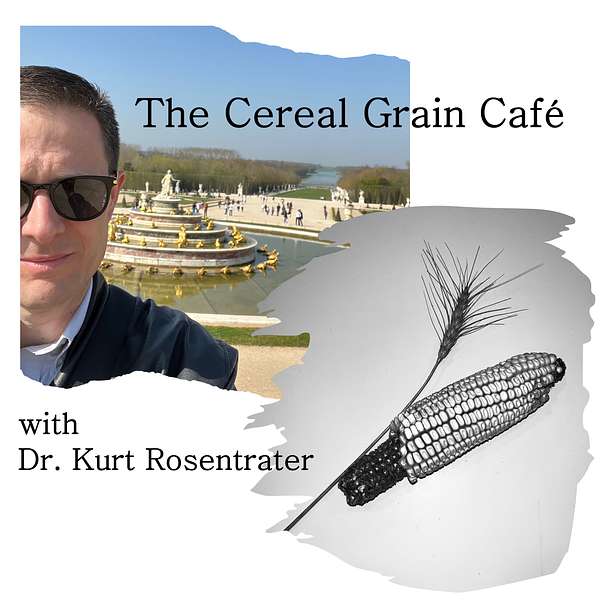
The Cereal Grain Café
All things related to cereal grains. Join host Dr. Kurt Rosentrater and his guests as they talk about grain, from farm to table, from ancient history to modern technologies, and everything in between. Grain has played a critical role in human societies throughout history, and it continues to even today.
The Cereal Grain Café
Season 1, Episode 10
Use Left/Right to seek, Home/End to jump to start or end. Hold shift to jump forward or backward.
Grain as a weapon? Have you ever heard of food being weaponized? What does this mean? It has happened repeatedly throughout history and is not new.
Russia invaded Ukraine in February 2022. We should care because Russia and Ukraine produce approximately 25% of global wheat supply and a large share of other grains. Ukraine alone (at least prior to the war) was exporting approximately 15 of the world’s corn and 10% of the world’s wheat. Food prices, insecurity, and starvation have been rising, especially in countries that are dependent upon these two countries as sources of food. Targeting Ukraine has impacted the world’s food supplies, with people most in need being hardest hit – innocent bystanders.
The USDA has resources and about grain export from Russia and Ukraine. You can find more information here: https://www.fas.usda.gov/data/russia-grain-and-oilseed-exports-expand
https://www.ers.usda.gov/webdocs/outlooks/105619/whs-23a.pdf?v=9791.4
Initially, all exports out of Ukraine ceased, which led to price spikes throughout global commodity trade. Post-invasion, the U.N. and the government of Turkey were able to negotiate the Black Sea Grain Initiative (BSGI) which allows Ukrainian grain to be shipped out of a handful of ports in the Black Sea (https://www.consilium.europa.eu/en/infographics/ukrainian-grain-exports-explained/); but this required mandatory inspections of incoming and outgoing cargo vessels. It was established in order to help meet global grain demand by allowing commodities to be shipped out of Ukraine – corn, wheat, sunflower, and other ag products (64% of Ukrainian wheat has been destined for developing countries while 51% of the corn has been similarly destined). This endeavor has helped global commodity prices stabilize and to even decrease to almost their pre-invasion levels.
On July 17, when this agreement was set for renewal, Russia decided not to extend the deal. Global wheat prices spiked by at least 9% within two days. The New York Times has an excellent piece discussing these developments: https://www.nytimes.com/live/2023/07/19/world/russia-ukraine-news/wheat-prices-spike-after-russia-declares-all-ukraine-bound-ships-are-possible-military-targets?smid=nytcore-ios-share&referringSource=articleShare
As I prepare this post, stories from the BBC just entered my feed: the Russians have been conducting missile strikes on grain terminals in Odesa: https://www-bbc-com.cdn.ampproject.org/c/s/www.bbc.com/news/world-europe-66242446.amp
Hopefully we can soon get back to feeding people, especially in developing countries. Stay tuned. This is such an important topic that we will definitely have another episode in the future.
Our music is Inspiring Cinematic Asia by Lexin Music, which is available at Pixabay.